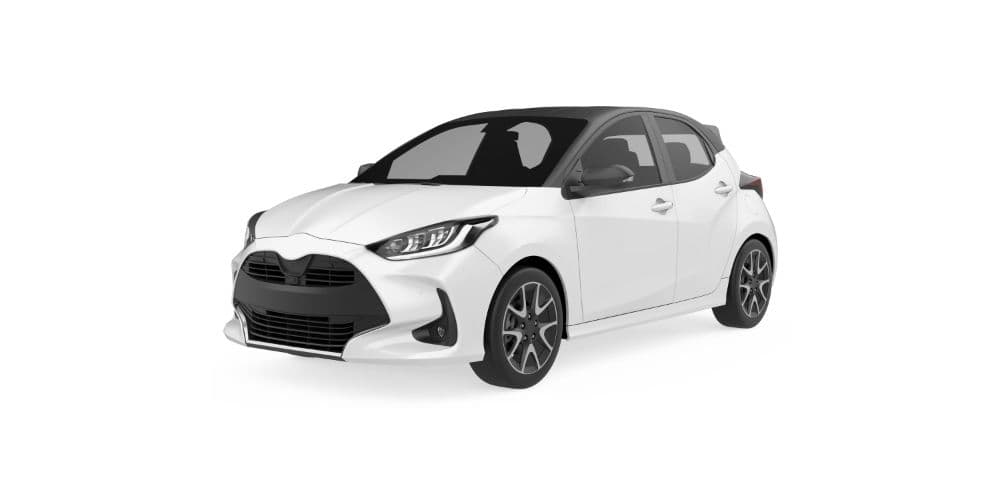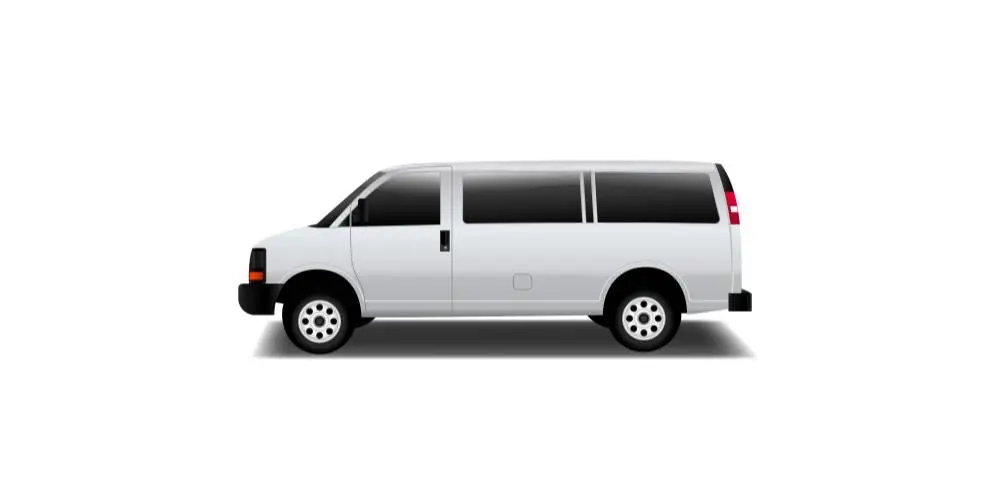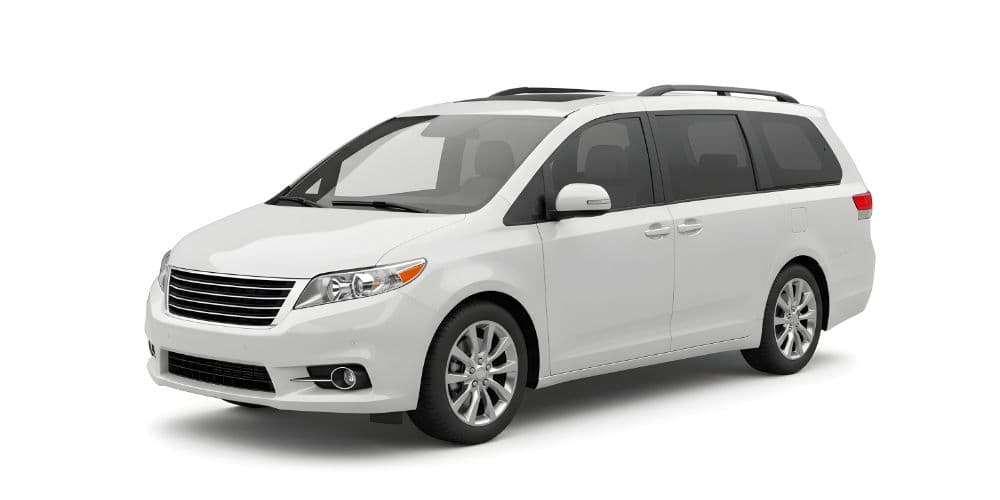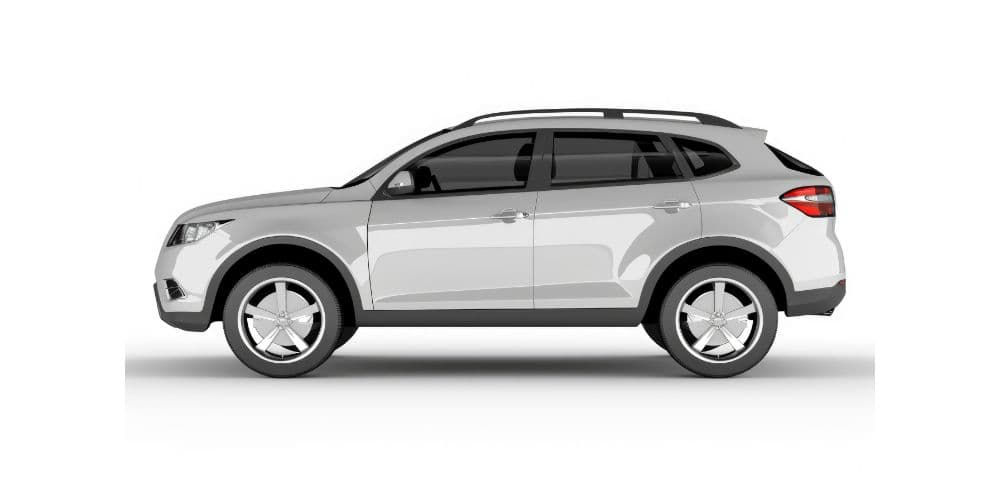
What to Do if You Get in an Accident in a Rental Car
Introduction
Unexpectedly getting into a car accident with a rental car can be an overwhelming and stressful experience. You're in an unfamiliar vehicle, possibly far from home, and suddenly faced with damage, injuries, and paperwork. Knowing exactly what to do if you get in an accident in a rental car is crucial for staying safe, protecting yourself legally, and ensuring the incident is handled properly. This guide will walk you through every step, from the immediate actions at the scene of the crash to the follow-ups with the rental company and insurance. By being prepared and informed, you can manage the situation calmly and minimize the complications that come with a rental car accident.
Step-by-Step Guide: Handling a Rental Car Accident
Follow these steps if you’re involved in an accident while driving a rental car:
- Ensure Safety First (Check for Injuries): Immediately make sure everyone is safe. Check yourself and passengers for any injuries, and if anyone is hurt, call 911 right away to get medical help on the scene. Even if there are no serious injuries, it’s wise to call 911 and request police assistance for any accident. If possible (and without risking further harm), move your vehicle out of active traffic to a safe spot on the side of the road. Turn on your hazard lights and, if you have them, set out road flares or cones to warn other drivers. Remember: safety is the top priority. Even in a minor fender-bender, stay calm, and ensure that you and others are out of harm’s way before worrying about the vehicles.
- Call the Police and Do Not Admit Fault: In any rental car accident, even a minor one, you should contact local law enforcement and file an official accident report. In fact, in most states, you are required by law to call the police after any vehicle accident. When the officers arrive, stick to the facts of what happened; do not admit fault or make apologetic statements like "I'm sorry," as these can be interpreted as accepting liability. While waiting for police, if everyone is okay, use this time to exchange information with the other driver(s) involved. Get their name, phone number, address, driver’s license number, license plate, and insurance details. Provide your information to them as well. If there are any witnesses, politely ask for their names and contact information too. Having a police report is vital, it provides an official record of the crash, which your rental company and insurance will likely require. Tip: Note the responding officers’ names and badge numbers, and ask how to obtain a copy of the police report for your records.
- Document the Accident Scene: While still at the scene, gather as much evidence as possible. Use your phone to take clear photos or videos of everything: the damage to all vehicles, the position of the cars, skid marks or debris, license plates, and the surrounding area (traffic signs, road conditions, etc.). The goal is to capture a detailed record of what happened. Also, jot down notes about the accident while it’s fresh in your mind, for example, the time, location (street names, landmarks), weather conditions, and a brief description of how the crash occurred. If there were passengers or witnesses, you might record their observations as well. All this documentation will help immensely later on when dealing with the rental company and insurance claims. Remember: the more information you have, the easier it will be to explain the incident and support your case. In addition to photos, exchange insurance details with the other driver and note their vehicle make/model. If police are on scene, they will also collect this information, but it doesn’t hurt for you to have your own copies. Being thorough now will save you headaches down the line.
- Notify the Rental Car Company Immediately: As soon as you can, usually before you leave the scene, call the rental car company’s emergency or roadside assistance number to report the accident. Most rental companies provide a 24/7 hotline (often found on your rental agreement or on a sticker in the glove box) for exactly these situations. Tell them exactly what happened and follow their instructions. They will likely ask for the police report details and the information you collected. The rental company may also have you fill out their own incident report form (similar to the police report) to document the crash in their system. Depending on the severity of the damage, the rental agency will advise you on next steps. For example, if the car is not drivable, they will arrange a tow truck and might provide a replacement vehicle. If the car is still safe to drive, they may direct you to return it to the nearest rental branch for an exchange. Make sure to ask the rental representative how to proceed, and note the name and position of the person you speak with, along with the time of the call. This helps if there’s any dispute later about what was communicated. Notifying the rental company promptly is important not only for safety and logistics, but also because failure to report the accident quickly might violate the rental agreement.
- Contact Your Insurance Provider: Whether you rely on your personal auto insurance or a purchased travel insurance policy, you need to inform your insurer about the accident as soon as possible. Call your insurance company (the number is usually on your insurance card) and explain that you’ve been in an accident with a rental car. Initiating a claim early will get the ball rolling on coverage. They’ll likely ask for details from the police report, the other driver’s information, and whether the car is drivable. Be ready to provide the facts of what happened, but again, avoid language that admits fault. If you purchased any supplemental insurance at the rental counter or if your credit card offers rental car coverage, let your insurance company know that too. Ask your agent or the claims representative key questions about your coverage: for example, confirm that you have collision coverage for rental cars, find out what your deductible is (the out-of-pocket amount you’ll pay for repairs), and ask if they will contact the rental company directly or if you need to do anything else. Understanding these details will clarify how payment for damages will be handled. Your insurer can also guide you on whether to file a claim or, if the damage is minor, handle it without an insurance claim (in some cases, paying out of pocket for very minor damage might avoid an insurance rate increase, but get guidance before deciding). The main point is to get the incident on record with your insurance so there are no surprises later and so that they can work on your behalf in dealing with any other parties’ insurance, if applicable.
- Understand Your Coverage and Liability: Once immediate steps are taken, take time to clarify who will pay for what in the aftermath. The rental car company, your insurance, the other driver’s insurance, or even a credit card benefit may all play a role. Generally, financial responsibility follows fault: if the other driver was clearly at fault, their liability insurance should cover the damage to the rental car and your related costs. If you were at fault (or no other driver was involved, e.g. you hit a tree or a deer), then your insurance will likely have to cover the damage to the rental vehicle. In this case, if you bought the rental company’s Collision Damage Waiver (CDW) or car insurance, then the rental’s coverage should handle the vehicle damage and you won't have to pay for those repairs. If you didn’t buy that waiver, then your own auto policy’s collision coverage would kick in to pay for the rental car damages, but you’ll still be responsible for your deductible amount. Also, be aware of coverage for injuries: your personal car insurance’s liability coverage typically extends to injuries or property damage you cause in a rental. Many travel credit cards offer secondary rental car insurance that can cover deductibles or other costs not covered by your primary insurance, so check if you have that benefit and notify the card company if needed. The bottom line is, you want to determine who pays for what. Work with your insurance adjuster and the rental company to understand how the claim will be handled. If the other driver is at fault, their insurer might be dealing with the rental company’s claims department directly. If there’s any dispute about fault, you might initially have to pay or use your insurance, and then your insurer can seek reimbursement from the at-fault party’s insurer later. Throughout this process, keep copies of all documents (police report, rental car incident report, insurance claim paperwork, repair bills, etc.) for your records.
- Follow Up and Keep Records: (Optional step, if needed) In the days following the accident, make sure to follow up with the parties involved. This includes checking in with your insurance claim adjuster for updates and ensuring the rental car company has everything they need from you. If you had to visit a doctor or if new symptoms appear, inform your insurance and seek medical care. Watch for any communication from the other driver’s insurance if they are at fault. Also, if the rental car company is charging your credit card for deductibles or damages, make sure those charges align with what you expect. If you feel uncertain about any part of the process, you might even consult with a legal professional for advice (particularly if there were significant injuries or complex circumstances). Keep all receipts (towing, taxis or rideshares after the accident, medical bills, etc.) as these might be reimbursable. By staying organized and proactive, you can help ensure the post-accident process goes as smoothly as possible.
(The first five steps above cover the immediate actions you should take at the scene and shortly after. Steps 6 and 7 are about understanding the financial and procedural aftermath. By following all of these, you’ll address the urgent needs and also set yourself up to handle the incident responsibly.)
Insurance and Liability Considerations
Every accident is different, and when it comes to who pays for damages in a rental car accident, it largely depends on who was at fault and what coverage is in place. Here’s a breakdown of the typical scenarios:
- If the Other Driver Is At Fault: The at-fault driver’s auto insurance liability coverage should pay for damage to your rental car, as well as any injuries or losses you suffered, up to the limits of their policy. In practice, the rental car company (or their insurer) would make a claim against the at-fault party’s insurance to recover the repair costs. You would still need to report the accident to your own insurance and the rental company, but you shouldn’t be on the hook financially if you truly were not at fault. (Keep in mind, if the other driver has insufficient insurance or is uninsured, your own policy’s uninsured/underinsured motorist coverage may need to step in.)
- If You Are At Fault (or No One Else Is Involved): If you caused the accident, your insurance will generally cover the damages to the rental car, minus any deductible. This typically falls under your collision coverage (for the vehicle damage to the rental) and your liability coverage (for any damage to other cars or property). If you purchased the rental company’s Collision Damage Waiver or insurance, then the rental car’s damage is covered by that waiver, meaning you won’t have to pay out of pocket for the repairs to the rental vehicle. (CDW is basically an agreement that the rental company won’t pursue you for damage to the car, as long as you didn't violate the rental agreement.) However, even with CDW, you could still be liable for other costs like medical bills or property damage to others, which would go through your personal insurance liability coverage. If you declined the CDW, then you will have to file a claim with your own auto insurer to cover the rental car damage. You’ll be responsible for paying your deductible, and your insurance will pay the rest of the repair cost.
- If Fault Is Shared or Unclear: Sometimes accidents aren’t black-and-white. It might take an investigation to determine fault, or drivers could share responsibility. In these cases, each party’s insurance might initially cover their own damages, or you might have to pay the rental car’s deductible first and await reimbursement later. Progressive Insurance notes that if there’s a dispute about fault, you might need to pay for the rental car damage upfront (or through your insurance) and then get reimbursed once liability is sorted out. Always keep communication open with your insurer, let them handle the negotiation with the other party’s insurer if fault is contested.
It’s also worth understanding the different coverage options that come into play with rental cars:
- Rental Car Company’s Coverage: If you bought insurance or a damage waiver from the rental company, use it! As mentioned, a Collision Damage Waiver covers damage to the rental vehicle itself. Just be aware it typically does not cover liability for injury or damage to others. Some rental insurance offers supplemental liability coverage as an add-on; if you purchased that, it would cover injuries or damage you caused to others up to a certain amount. Always read the fine print of what you bought.
- Personal Auto Insurance: In most cases, your personal auto policy extends to rental cars. That means your liability coverage and collision/comprehensive coverage apply when you’re driving a rental, as long as you are using it for personal use (business use can be an exception) and you’re in the same country. Check your policy or ask your agent to be sure. Using your own insurance is often the primary means of coverage if you didn’t buy the rental agency’s insurance. But remember, any claim may be subject to your deductible and could potentially affect your premium.
- Credit Card Coverage: Many credit cards offer secondary rental car insurance if you use the card to pay for the rental and decline the rental company's CDW. “Secondary” means it may cover what your primary insurance doesn’t, such as your deductible or other costs. For example, some credit cards will reimburse damages to the rental car up to a certain amount. However, credit card coverage usually has limitations (it might not cover luxury vehicles, rentals beyond a certain period, liability, injuries, etc.). It’s best to know in advance what your card covers. In the event of an accident, you would notify your credit card company’s benefit services immediately to start a claim with them in addition to your auto insurance claim.
- Travel Insurance: If you purchased a travel insurance policy for your trip, it might include rental car collision coverage as an option. This can function similarly to a CDW (covering damage to the rental car). Again, you'd need to read your policy to see coverage limits and what’s excluded.
In summary, protecting yourself financially after a rental car accident comes down to knowing what coverage you have. If you’re ever in doubt, ask the rental agent at the time of rental, and don’t hesitate to call your insurance company before you rent to clarify your coverages. After an accident, make sure all relevant insurance companies (yours, the other driver’s, the rental’s, maybe your credit card’s) are informed and that claims are filed properly. With the right preparation and prompt action, you can avoid most surprise bills.
Conclusion
A car accident is never a pleasant experience, and dealing with one in a rental car adds an extra layer of complexity. But by following the steps outlined in this guide, you can handle the situation with confidence. Prioritize safety at all times, that comes first. Then involve the police and gather evidence so everything is properly documented. Inform your rental company and insurance promptly, since timely reporting is often required for coverage. Finally, know your coverage, understand who should pay for what, so you’re not caught off guard by any charges.
Being prepared and knowledgeable about what to do if you get in an accident in a rental car can make a huge difference in the outcome. It can save you money, protect you from legal troubles, and get you back on track with your travels sooner. Remember that accidents happen, even on vacation or business trips, and that’s why we have these protocols in place. By staying calm and following the guidance here, you’ll get through the incident safely and responsibly. Safe driving, and we hope you never have to use this advice, but if you do, you’ll be ready.
Our Most Popular Vehicles
Frequently Asked Questions
If you’re in a rental car and another driver crashes into you (and is clearly at fault), the process is much like any accident where you’re not at fault. The other driver’s liability insurance should cover the damage to the rental car, as well as any medical bills or losses you suffered. You will want to get their insurance information at the scene and make sure the police report reflects accurate details of what happened. You or the rental company will file a claim against the at-fault party’s insurance for the rental car’s damage. It’s also important to still call your own insurance and report the accident (even though you might not be at fault), because your insurer can help coordinate with the other insurance company and the rental company. If you purchased a CDW from the rental company, you would also report the accident to the rental insurer, but typically the at-fault party’s insurer will end up reimbursing the rental car company for the damages. One thing to watch out for: if the other driver’s insurance is slow to pay or if fault is being investigated, the rental car company might charge your credit card or expect you to pay for the damages upfront. Don’t panic – this is often just a procedural thing. Your insurance or the other party’s insurance will sort it out and you’d be reimbursed if you had to front the costs. Also, if you need a replacement rental car, the at-fault driver’s insurance should cover that too (or your travel insurance might, if you have trip coverage for interruptions). The key is, not being at fault generally means you shouldn’t bear the financial burden, but you do have to be proactive in providing all information and coordinating with the insurers. If any issues arise, you have the police report and all your evidence to back you up.
Buying the rental car company’s insurance or Collision Damage Waiver (CDW) can greatly simplify things. If you opted for the CDW, you generally won’t have to pay for damage to the rental car out of pocket – the rental company waives their right to charge you for any repair costs, subject to the terms of the waiver .This means if you get in an accident, you simply return the car (or what’s left of it) to the company and their insurance handles the rest for the vehicle. However, note that CDW and rental insurance typically cover only the rental car’s damage. They usually do not cover any liability for injuries or damage you cause to other vehicles or property. So you would still need your personal liability insurance (or the rental’s supplemental liability insurance, if you bought that) to pay for any third-party costs. Also, be aware of conditions: if you were violating the rental agreement (e.g. driving recklessly, or off-road when you shouldn’t, or an unauthorized driver was behind the wheel), the CDW could be void. Assuming you followed the rules, having the rental’s insurance means the rental company won’t come after you for the car’s damage. You should still report the accident to them and follow all the steps (they will have you fill out an incident report). In summary, CDW covers the car, but not other liabilities. It gives peace of mind about the vehicle, but keep your own insurance in the loop for everything else.
It can. If you file a claim with your personal auto insurance due to a rental car accident (especially if you were at fault), it is typically treated like any auto claim and could lead to a premium increase upon renewal. Insurance companies consider accidents in a rental car the same as accidents in your own car when it comes to your risk profile. Even a not-at-fault accident might subtly affect your rates with some insurers, though usually the major increases happen if you are at fault and the insurance company has to pay out for damages. One exception: if you had a minor incident and paid for the damage out-of-pocket (or it was fully covered by a purchased CDW or a credit card insurance without involving your insurer), then your insurance company might never find out, and your rates wouldn’t change. But any time your insurer pays for a claim, you should expect it could reflect in your rates. It’s wise to discuss with your agent how a claim might impact your premium. In some cases, if the damage is minor, you might choose to handle it without insurance to avoid a rate hike, but make sure that’s allowed and won’t violate any rental car agreement terms.
In most cases, yes, your personal auto insurance extends to rental cars. If you have collision and comprehensive coverage on your own car, that coverage typically applies to a rental car as well, meaning damage to the rental car would be covered (up to your policy limits and minus your deductible). Your liability insurance (for injury or damage you cause to others) usually carries over to rentals, too. Keep in mind that you are subject to the same terms – so if you wouldn’t be covered for a certain situation in your own car, you wouldn’t be covered in a rental either. It’s always a good idea to double-check your policy or call your insurance agent before renting, just to be sure of your coverages. If you declined the rental company’s collision damage waiver, you are counting on your personal insurance to cover the rental, so you’ll want to know exactly how much it covers. Also, remember that if you do have to make a claim on your policy for a rental car accident, you’ll have to pay your deductible and it could affect your future premiums. But bottom line: if you’re driving a rental for personal use, your personal auto policy usually has you covered for accidents in that rental car progressive.com .
Yes. Even if it’s a minor accident, you should call the local police and file an accident report when driving a rental car. Most rental companies require an official police report for any accident, no matter how small, to process insurance claims or use their coverage. The police will document the scene and provide an official record of what happened, which protects you in case the other party later changes their story. It also helps to have officers on scene if the other driver is uncooperative or if there’s a language barrier. In many places, it’s legally required to report accidents above a certain minor damage threshold – and a rental company will err on the side of “report it.” So, calling the police is the smart move for both legal and practical reasons. Make sure to get a copy of (or a reference to) the police report, as your insurance and the rental agency will likely ask for it.



